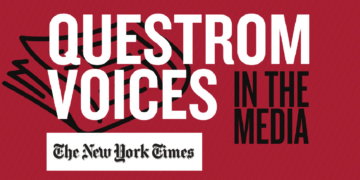June 22, 2022
In the United States, access to good, reliable, community-based medical care continues to present a challenge, especially for those individuals living in under-served and under-resourced communities. Many hospitals have tried to implement initiatives designed to improve access, but the innovation has been slow to materialize and has been hampered by regulation. Private enterprises are hoping to fill the care gap. Lucia Ryll, fourth year medical student and Health Sector MBA candidate from Boston University, recently penned an op-ed for Medpage Today that speaks to the potential benefits and pitfalls of industry stepping in to answer the social challenge of access to healthcare.
One of the biggest names in healthcare trying to close the access gap is CVS Health. In November of 2021, CVS announced that they would begin hiring primary care physicians to staff their new HealthHUB clinics. This move makes CVS Health the first company to offer physician patient care with a pharmacy, covered through its own insurance plan (Aetna), and managed by its own pharmacy benefit manager (Caremark).
“With the majority (71%) of Americans living within a 5-mile radius of a CVS, the company is poised to deliver local, convenient primary care. However, the complexity of incentives in the integrated CVS Health model pose reasons to approach this new model with caution.”
Lucia Ryll




















![[Medpage Today] Will CVS Health Be a Positive Disruptor to Primary Care?](https://insights.bu.edu/wp-content/uploads/cvs_health_exterior_shot_of_healthhub_location_at_cvs_pharmacy_store_promo_image-750x375.jpg)






